K Dramas — that’s the number one reason youngsters choose to learn Korean. And why not? It’s addictive. Don’t say I didn’t warn you.
The craze has reached a new height as more and more people worldwide enjoy the popular culture (Hallyu) through online streamable options.
Whether you want to study in Korea or looking for a career change, you have many motives to pick Korean.
And if that’s not enough, you have an exciting world of Korean dramas.
There are obvious reasons for popularity.
Korean dramas are addictive, visual feasts, unique storylines, entertaining, melodic soundtrack, and bring one’s fantasy to screen.
Be the romantic comedies and zombie horror series to historical fiction shows and the intense script thriller, it has something for everyone.
Then, why not spice up your Korean studies by viewing K-dramas? This can be an excellent language learning tool.
With all that in mind, here in this article, you will find the 20 best Korean dramas that can help you improve the Korean language.
TABLE OF CONTENTS
- How watching dramas help you learn Korean?
- Where to view Korean dramas?
- 20 Excellent Dramas for Learning Korean
- 1. Boys over flowers (꽃보다 남자), 2009
- 2. My Love From The Star (별에서 온 그대), 2013
- 3. Coffee Prince (커피 프린스 1호점), 2007
- 4. W-Two Worlds (더불유), 2016
- 5. Strong woman Do Bong Soon (힘쎈여자 도봉순), 2017
- 6. Suspicious partner (수상한 파트너), 2017
- 7. True beauty (여신강림), 2020
- 8. While you were sleeping (당신 잠든 사이에), 2017
- 9. Welcome to Waikiki (으하차차 와이키키), 2018
- 10. Welcome to Waikiki 2 (으라차차 와이키키 2), 2019
- 11. What’s Wrong with Secretary Kim (김비서가 왜 그럴까?), 2018
- 12. So, I married an Anti-fan (그래서 나는 안티팬과 결혼했다), 2021
- 13. The legend of the blue sea (푸르 바다의 전설), 2016
- 14. Oh my Venus (오 마이 비너스), 2015
- 15. School 2015: Who are you (학교 2015: 후 아 유), 2015
- 16. Hotel Del Luna (호텔 델 루나), 2019
- 17. Kill me, Heal me (킬미, 힐미), 2015
- 18. Heirs (상속자들), 2013
- 19. Playful kiss (장난스런 키스), 2010
- 20. Cinderella and four knights (신데렐라와 네 명의 기사), 2016
- Final Words
How watching dramas help you learn Korean?
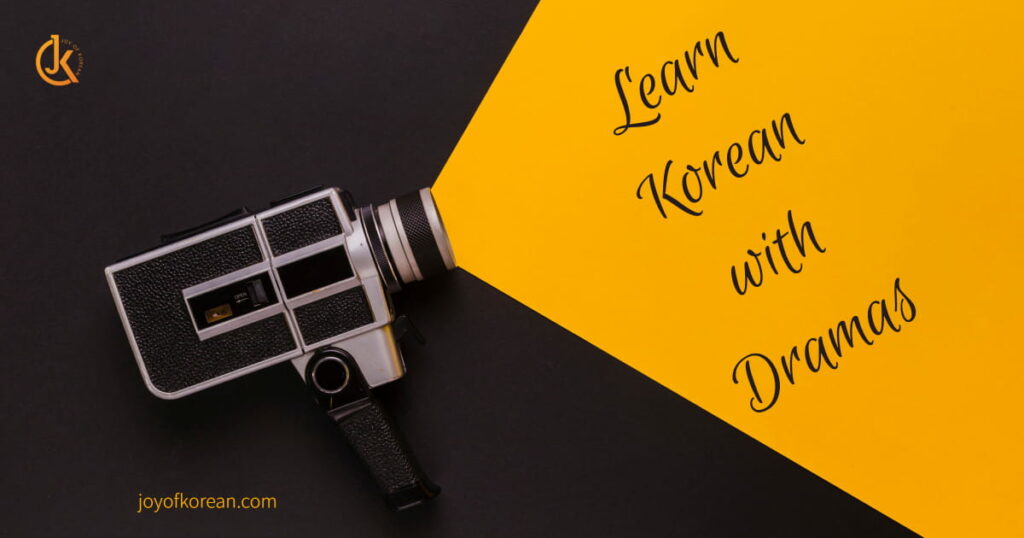
Is it even possible to use Korean dramas to study Korean?
The short answer is yes.
Back in 2016, I hardcore fell for Korean dramas. I used to watch one after other features and, just like that, became a couch potato.
But never thought this would be a help to me while acquiring the tongue. There are many reasons to learn Korean with dramas.
One of the most exciting things while picking up this speech is that we get to watch soapies.
The spaced repetition method encourages you to listen, read, and speak the same thing many times. This will fix the dialogues in your mind and tongue.
Of course, you won’t be anywhere close to fluent, but those words and sentences will stick in your brain.
And be shocked at that plot twist over twists in he is Psychometric.
Besides reading (subtitles) and speaking (mimicking the dialogues), you will improve your listening skills.
This is a fun way to learn a new language through Korean dramas.
If your Korean institute can teach in three years, shorten the time to two if you have Korean dramas besides the classroom instruction.
Cultural appearances and traditional aspects are also prevalent in the drama — this is a powerful way to immerse yourself into everything Korean.
This is one of the perks to discover more about South Korea.
I watch dozens of series, but this time, with or without Korean subtitles. As a K-addict myself, I want to do K-drama & feel rather than Netflix & chill.
Where to view Korean dramas?
Many websites and streaming platforms provide tons of dramas, video shows, music, and movies for Korean learners.
You can watch K-dramas on Netflix, Amazon Prime Video, HBO, Hulu, and other free platforms like Asian Crush, Viki Rakuten, DramaCool, Vimeo, Viu, and YouTube.
The selection on these sites may be limited, and some of the most well-known is not available. Still, you can find some exclusive Korean dramas on each website and apps.
With easy access to the internet and various OTT platforms, everyone can experience entertaining Korean drama for their comfort.
20 Excellent Dramas for Learning Korean
If you want to dive deep into it, here are 20 such Korean dramas that will be the best for you to as a linguist trainee.
Let’s get into the base of Hallyu!
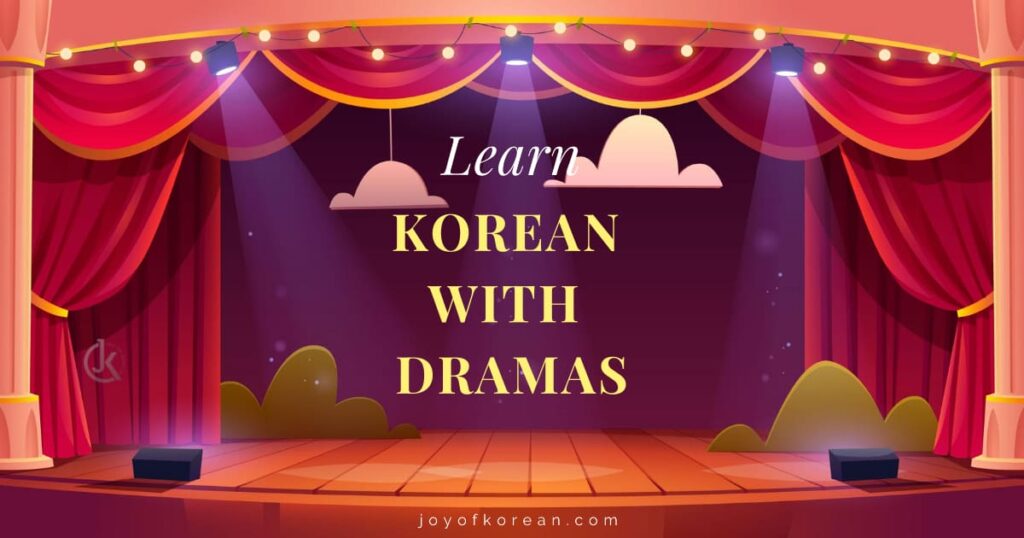
1. Boys over flowers (꽃보다 남자), 2009
This installment won’t disappoint you, whether it’s mastering your target diction or starting your k-streaming journey. BOF is also a starting point for Hallyu.
The charm of Gu Jun-Pyo, Yoon Ji-hoo, So Yi-Jung, and Song Woo-Bin, was no joke back in the 2010s. And the beautiful Geum Jan-di, the epic cast. She belongs to a not-so-well financial family.
Our lead, on the other hand, comes from a Super-rich one. Still, due to some fortunate circumstances, Jan-di gets the opportunity to attend the school. In fact, the school he goes to belongs to his family business.
Jun-Pyo is a spoiled brat. Apart from his friends, he treats everybody else like they are nothing. So how do these all meet, and how this story revolves?
I leave that to you.
You can find both honorifics and informal language in this. If you plan to take the higher level of Korean language proficiency test, watch 꽃보다 남자.
- 다시 한번 생각할 것도 없이, 내일부터 학교 나갈 겁니다.
Meaning: There is no need to think twice as she will be there in school tomorrow.
Words & Grammar:
- 다시 – again,
- 한번 – once more,
- 생각하다 – to think,
- 없다 – to not exist, to not have (anything),
- 내일 – tomorrow,
- 부터 – from (only used for a time, ex, 수업 언제부터 시작했어요? – Since when did the class start?)
- 학교 – school
- 나가다 – go outside
- 겁니다 – Formal version of future tense (으)ㄹ 거예요.
2. My Love From The Star (별에서 온 그대), 2013
Do Min-Joon (Kim Soo-Hyun), a handsome alien left behind on our planet Earth 400 years ago. But, according to him, humans can’t be trusted.
But a girl from ancient days plays a vital role in changing his mind.
Now, it’s the year 2013. Cheon Song-Yi (Jun Ji-Hyun) is a popular actress in the country.
But she’s a trouble maker as well. Hence, always gets bundled in controversy. So you will enjoy that a lot.

Jun Ji-Hyun made her comeback through this installment after 14 years. This looks like K-fans can never forget this series. If you hear that savage “Sorry,” you can’t back off from watching it entirely.
The situational dialogue you can find in it. This is one of the best Korean drama to start with.
- 아침부터 수고가 많으시네요. 자전거 타고 가시네요?
Meaning: You are working hard from the morning itself. Are you going by riding a bike?
Words & Grammar:
- 아침 – Morning,
- 수고하다 – to work hard (수고하시겠습니다 – also used after leaving workplace).
- 많다 – many
- 자전거 – bicycle
- 타다 – to ride
- 가다 – to go
- ~시 – Honorific form
Ex: when talking with elders, we need to use 시 to talk respectfully with them.
3. Coffee Prince (커피 프린스 1호점), 2007
Before Train to Busan or Goblin, Gong Yoo impressed everybody with his acting in this aroma-full screening.
He played Choi Han-Kyul, an heir who is asked to return to his country from the States by his grandmother, a businesswoman.
She challenges him to make a profitable business of a coffee shop within three months. Only then will she allow him to go back to the US.
To make it successful, he only hires charming men to attract women to visit their shop.
Go Eun-Chan (Yoon Eun-Hye), a 24-year-old tomboyish girl, is often mistaken for a guy. She lost her father when she was only 16 and now is the sole earner of the family.
When she is hired to work in the café. Then, she learns that Han-Kyul thinks of her as a guy and has hired her. She tries to keep this a secret from him.
A dreamy line that is said in an episode, which goes like this.
- 아무튼 내 꿈이 뭔지는 잘 모르겠지만요. 요즘엔요… 커피는 잘 만드는 사람이 되고 싶어요.
Meaning: I don’t know what my dream is, but I just want to be a person who makes good coffee these days.
Words & Grammar:
- 아무튼 – Anyway,
- 내 – My, Me (Informal),
- 꿈 – Dream,
- ~N인지 모르다/알다 (Ex: 저희 아버지 생신 언제인지 알아요? – Do you know when is our father’s birthday?),
- 잘 – well,
- 모르다 – to not know,
- 요즘 – these days,
- 만들다 – to make,
- 사람 – person,
- ~되고 싶다 – to become.
4. W-Two Worlds (더불유), 2016
A fantasy drama was featuring two different worlds.
This has Lee Jong-Suk and Han Hyo-Joo. In addition, it stars Kang Cheol, a talented Olympic gold medalist shooter who was blamed for killing his family.
While Oh Yeon-Joo is a surgeon and the daughter of famous webtoon creator, Oh Sung-Moo. She gets pulled into another world where she saves a man.

Later she realizes he is the main lead of the webtoon his father is working on. Like this, she gets jumbled into a murder mystery.
A language student will get exposed to a lot of everyday vocabulary through W.
- 마음에 드는 건 골라도 돼요
Meaning: You can choose whatever you like.
Words & Grammar:
- 마음 – Mind
- 마음에 들다 – to like something
- 고르다 – to choose
- ~도 돼요 – you can do (that), you are allowed to do (that).
5. Strong woman Do Bong Soon (힘쎈여자 도봉순), 2017
This is all about an unemployed, kind, and sweet woman. Her mother, grandmother, and herself were gifted with unbelievable energy. But kindness does not work when she shows her strength.
She can easily fight goons with just her one kick. But, nevertheless, there is a drawback.
If she abuses her power, this will be taken from her forever.
On one such day of fighting gang members, Ahn Min Hyuk (Park Hyun-Sik), the CEO of Ainsoft and a self-made man, witnesses her ability to beat bad people.
He later hires her to protect him.
This is a good program for lower-intermediates, so much to learn for all. This is one of the highest-rated Korean dramas.
- 우리 회사 면접 본 적 있어요?
Meaning: Have you appeared for an interview in our company earlier than well?
Words & Grammar:
- 우리 – Our
- 회사 – Company
- 면집 – interview
- 보다 – to see (Here: to appear for)
- ~V(으)ㄴ 적 있어요? (Have you experienced/done before?)
6. Suspicious partner (수상한 파트너), 2017
Noh Ji Wook (Ji Chang-Wook) is a prosecutor who loves his profession. He is helpful, thoughtful, and intelligent.
A case changes his and Eun Bong-Hee (Nam Ji-Hyun), a prosecutor trainee’s life.
Ji Wook presents her in court. She gets convicted for the murder of her former boyfriend. However, he loses his work in the process and becomes a lawyer.
Two years later, she starts to work under the lead. And tries to solve the “psychopath” murder case together.
This has a lot of legal discussions followed by everyday conversations. Thus, it is suitable for upper-intermediate.
- 기사님, 저 저 앞 아무데나 좀 세워주세요.
Meaning: Driver, Can you drop me off over there out front? Anywhere, please.
Words & Meaning:
- 기사님 – Driver
- 저 – That
- 저 – Me (Formal)
- 앞 – Front
- 아무데나 – Anywhere
- 좀 – A little (Note: Native Korean speakers also use this as a filler. Here, it means the same).
- 세우다 – Drop.
7. True beauty (여신강림), 2020
This new drama is starring one of the elegant and successful faces of the K-pop and K-drama industry, Cha Eun-Woo. He plays Lee Su Ho, who is a high school student.
He is attractive but famous for his stern look and dark history. But he is kind from inside.
Lim Ju-Gyeong, on the other hand, is a high-school girl bullied for being ugly. So when she transfers to another school, she masters the art of make-up from YouTube.
Now, even if she is in a do-or-die situation, she won’t reveal her true face in front of her new friends.
Su-Ho turns out to be the only guy who has seen her without make-up. The series questions whether he will see her true beauty or judge her based on her looks.
Again a series of new vocabularies are coming your way if you choose this to study. This is one of the best all-time Korean dramas.
- 집중하면 다 할 수 있어요.
Meaning: You can do everything if you concentrate.
Words & Grammar:
- 집중하다 – focus, concentrate
- ~V(으)면 – If
- 다 – all, everything
- 하다 – to do
- ~V(으)ㄹ 수 있다 – Can do (Verb).
8. While you were sleeping (당신 잠든 사이에), 2017
This is a story of two people who get premonition dreams. Since her childhood, Nam Hong-Joo (Bae Suzy) dreams about events beforehand, be it good or bad.
But she can’t stop anything from happening even if she knows what is going to happen next.

The lead, Jung Jae Chan (Lee Jong-Suk), is a hardworking newbie prosecutor who moved in front of Hong-Joo’s house just a day next to when she gets a dream about him.
As the plot moves forward, twists over twists get revealed. This is a thriller and watch-worthy soap, even if you are not a linguistic disciple.
A tremendous amount of future and past tense on your way if you are a Korean rookie. This can help you prepare for TOPIK or KLAT level IV/V.
- 오늘 밤새서라도 다 할 겁니다.
- 홍주한테서 대충 얘기 들었습니다.
Meanings: (i) Even if it takes all night, I’m going to finish them all. (ii) Hoo Joo told me briefly about what happened.
Words & Grammar:
- 오늘 – Today
- 밤새 – Night
- 한테/한테서 – To/From
- 얘기 (이야기하다) – Story (Have a conversation)
- 대충 – Roughly, Briefly
- 듣다 – to listen.
9. Welcome to Waikiki (으하차차 와이키키), 2018
Dong Goo, Joon Ki, and Doo Shik, a videographer, aims to become a film director, a struggling actor, and a freelance writer.
These three young men want to make a film of their own. They have the skills but lack money.
So, they rent a guesthouse, “Waikiki,” in the popular foreign area of Korea, Itaewon. Then, they run it to raise some capital for their upcoming project.
But face many struggles in between. For example, on one such day of partying, they are suddenly gifted with a baby. Now how they manage to handle this and many such situations will surely make you laugh out loud.
This includes many everyday conversations based on a guesthouse, which stands as a base for much more expressive vocabularies.
- 지금 속소를 찾아보는 중이있어요.
Meaning: We are looking for a place to live.
Words & Grammar:
- 지금 – now,
- 속소 – accommodation,
- 찾다 – to find,
- 찾아보다 – to look for,
- 중 – in the middle of Verb (ing).
10. Welcome to Waikiki 2 (으라차차 와이키키 2), 2019
Before coming in front of an audience as an orphan boy who becomes a successful and rich man in “Start-up,” Kim Seon-Ho starred in the second installment of the hit skit Welcome to Waikiki.
The only actor who is unchanged in the sequel is Lee Joon Ki. He still is a struggling performer who refuses to take help from his famous Veteran-actor father.
Cha Woo Shik dreams of becoming a singer and releasing his solo album. While Kook Ki Bong wants to be a famous baseball player.
Instead, he doesn’t get many chances but to play in minor leagues. They want to save this guest house from the landlord, who wants to sell it.
This is followed by incredible talks that work for a Korean student.
- 발로 라면 먹는 사람 처음 보지?
Meaning: You have never seen someone eat ramen with their food, right?
Words & Grammar:
- 발 – feet
- (으)로 – through (something)
- 먹다 – to eat
- 사람 – person
- 처음 – first
- ~지요/죠 – asking for confirmation (지 – informal form)
11. What’s Wrong with Secretary Kim (김비서가 왜 그럴까?), 2018
An heir who is full of “Aura.” Well, at least this is what he thinks of himself highly.
A Narcissistic Vice President of a company who for once in life got bothered about something. Only when his secretary, Kim Mi So, worked tirelessly for 9 years and now decided to quit.

A person likes Lee Young Joo, who doesn’t acknowledge the people who work for him. He is too self-absorbed.
Then why is he irked over his secretary resigning? The plot is about these two individuals.
A lot of workplaces’ atmosphere could easily be found here.
- 최송한데 제가 개인적인 일이 있어서 나가봐야 돼요.
Meaning: I’m sorry, but I have to go out for a personal reason.
Words & Grammar:
- (으)ㄴ데 – But, and (depending on the context)
- ~ 제가 – I
- 개인적 – private, individual
- 일 – work
- ~어서/아서 – because (reason) & VERB-after (sequence)
- 나가다 – to go out.
12. So, I married an Anti-fan (그래서 나는 안티팬과 결혼했다), 2021
Choi Tae-Joon is back with his charm, but this time, he is the main character. This is one of the most anticipated Korean dramas of 2021.
This is based on the novel of the same name. And also adapted into a Chinese film wherein EXO’s Chanyeol played the lead.
Hoo Joon is a top star in Korea and the world. He is invited to a club opening wherein Lee Geun-young, a magazine reporter, witnesses his violent attitude.
They both get into a conflict, and Lee ends up vomiting on his shoes. Then, seeing the controversy blowing up, they both are offered to do a TV program.
How these two polar opposite personalities live under one roof?
That’s what interesting about this Korean drama series. It’s currently on air.
It’s kind of like watching behind the scenes of today’s Korean variety shows.
- 6년 전보다 이제 많이 달라잖아요.
Meaning: She has changed a lot in the last 6 years, hasn’t she?
Words & Grammar:
- 년 – Years
- 전 – before
- ~ A/V-보다 – ~than (comparative)
- 이제 – now
- 달다 – to be different
- ~ 잖아요 – used assuming the other person knows what you are talking about.
13. The legend of the blue sea (푸르 바다의 전설), 2016
Indeed, Jun Ji-Hyun never disappoints with her performances. You can relate to her in many references.
Like, how k-drama addicts behave. You will find yourself laughing crazily throughout the 16 episodes.
She is a mermaid who searches for her only true love, Kim Ryung, a nobleman’s son from the Joseon Dynasty.
His doppelganger is today’s Seoul resident, Heo Joon Jae, who is an aced scam artist. It’s not only about how these two leads meet but also about how the supporting cast does as well.
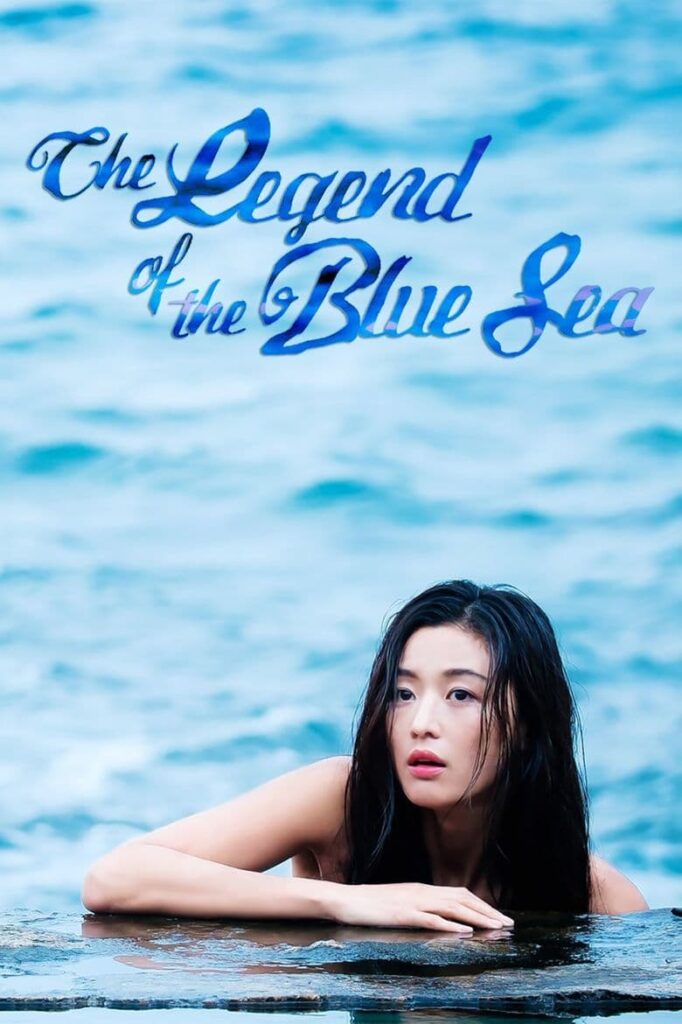
- 그럼 바로 만나자. 내가 갈까, 네가 올래?
Meaning: So let’s meet right now. Should I go there or do you want to come here?
Words & Grammar:
- 그럼 – so, then,
- 바로 – right now, instant,
- 만나다 – to meet,
- ~V+자 – Let’s VERB (Informal)
- ~V(으)ㄹ까요 – Shall we? (Suggestion)
- ~V(으)ㄹ래요 – Do you want to VERB?
14. Oh my Venus (오 마이 비너스), 2015
A woman who in her youth days was every guy’s dream. Her nickname back in school was “Daegu’s Venus.” Kang Joo-Eun, 33, a lawyer, has now gained weight.
Nothing was wrong until then. But her boyfriend of 15 years dumps her for being overweight, that’s when she decided to lose her weight.
She tried every possible method, but nothing worked. Now what?
Joo-Eun comes across Kim Yeong Ho, who had become famous in the US for training an actress. He bundles up in a controversy with that celebrity and hence, comes back to his home country.
K-pop fans better not miss Henry (former Super Junior) in this one. He will surely bring a smile to your face.
- 몸이 많이 안 좋아 보이시네요. 좀 쉬세요.
Meaning: You really look sick. Please take some rest.
Words & Grammar:
- 몸 – body,
- 안 좋다 – not good,
- 보이다 – to show,
- 쉬다 – to take rest,
- ~ 세요 – Please do~ (honorific form)
15. School 2015: Who are you (학교 2015: 후 아 유), 2015
Go Eun-Byul is living a comfortable life with her mother and lovable friends. She attends the most eminent school in the Gangnam district of Seoul, Sekang High School.
She is popular there. Yet, her twin Lee Eun Bi has to go through tremendous bullying at her school.
She lives in another district in Seoul. On a school trip, Go Eun Byul goes missing. She is replaced by Eun-Bi, but everyone thinks she is Eun-Byul.
So Eun-Bi decides to live as Eun-Byul. But her life becomes challenging when her bully transfers to Sekang High school and tries to expose her.
- 학교 가기 싫은데 안 가면 되게 불안해요.
- 저번 운동화도 발에 딱 맞았었거든요.
Meaning: (i) I don’t really like going to school, but I feel anxious if I don’t go. (ii) The sneakers from the last time were also a perfect fit.
Words & Grammar:
- V+기 – going (VERBing)
- 싫다 – to hate, to don’t like
- 불안하다 – to be anxious, nervous
- 저번 – that time
- 운동화 – sneakers (운동 – sports, exercise)
- 딱 – just
- 맞다 – correct (Here: a perfect fit)
16. Hotel Del Luna (호텔 델 루나), 2019
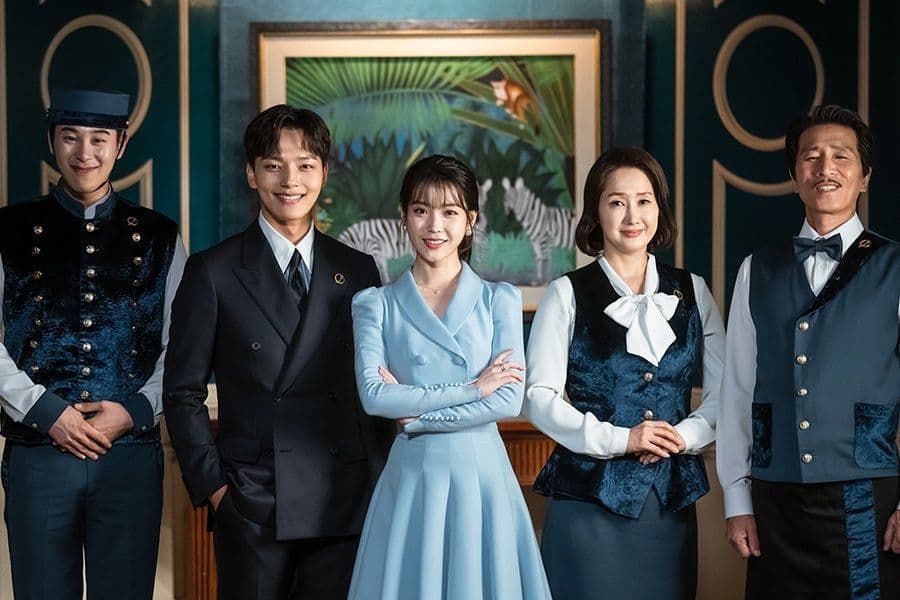
Jang Man Wol (IU) is a greedy CEO of a huge hotel that serves ghosts. But, unfortunately, the staff working there are dead people.
But Man Wol is somewhere stuck in between. She can’t age, neither can she die. So this hotel is given to her to operate as a curse. A curse she no longer remembers, as she had lived for the past thousand years.
She hires Goo Chan Sung as the new manager without his will as a promise made by his father years ago.
The CEO’s only way to escape this curse is by finding somebody who has done something even worse than her.
This binge-worthy Hotel del Luna is also one of the viewed Korean dramas.
- 저기요, 수영장 아직도 이용할 수 있어요. 자세한 내용은 메일로 상의 드리겠습니다.
Meaning: Excuse me, can we still use the swimming pool? I will explain this in more detail over email.
Words & Grammar:
- 수영하다 – to swim
- 아직 – still
- 이용하다 – to use
- ~ V(으)ㄹ 수 있어요 – Can Verb
- 자세하다 – in detail
- 내용 – content
- 상의 – advise, reason
- 드리다 – to give (honorific of 주다)
17. Kill me, Heal me (킬미, 힐미), 2015
Cha Do Hyeon has faced a disturbing episode in his childhood which later results in Multiple personality disorders.
Slowly and steadily, he develops 7 different personalities in himself.
One day he finds himself on a flight to Korea from the US without his will. Every character inside him demands something or other.
No doctor wants to help him as his other identities are dangerous for them. He asks a first-year psychiatric student, Oh Ri Jin, to help me heal.
As the story revolves, she falls in love with one of the characters of Do Hyeon.
While on the other hand, Ri Jin’s twin brother, a successful yet mysterious thriller novelist, Oh Ri On, looks deeper into Do Hyeon, his relationship, and his past with the family.
- 11년만에 고국 땅을 밟은 느낌이 어떠세요? 제가 막걸리 사 줄게요.
Meaning: How are you feeling landing in your home country after 11 years? I will buy you a Makgeolli.
Words & Grammar:
- 만 – only
- 고국 – homeland
- 땅 – land
- 밟다 – to step on
- 느낌이 – feeling
- 느끼다 – to feel
- ~V(으)ㄹ게요 – I will VERB for you
18. Heirs (상속자들), 2013
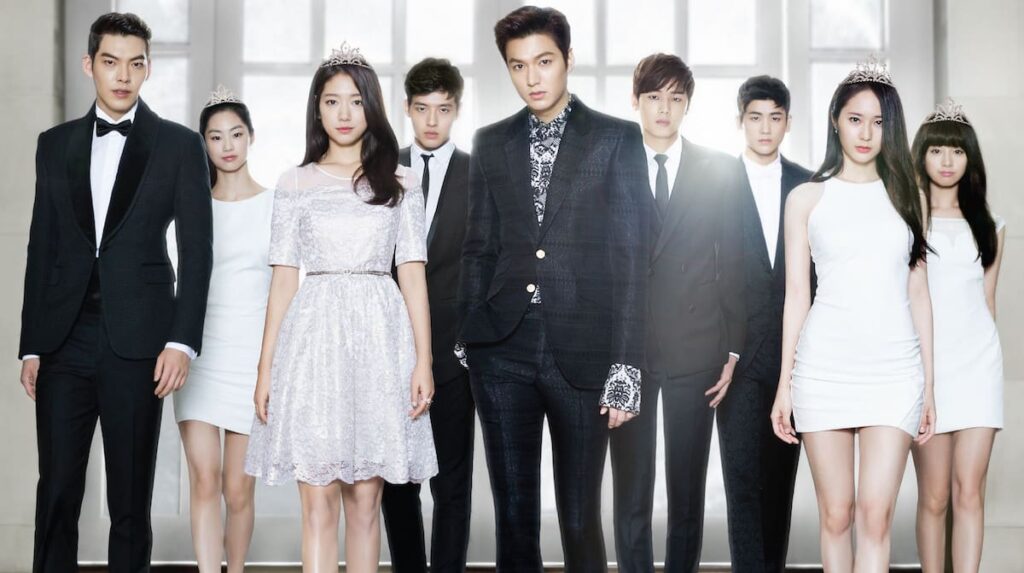
Kim Tan’s older half-brother wants to take over the family business. So he sends him to the US to study abroad. However, he does not allow him to come back. Tan is desperate to return to his country.
While Cha Eun Sang is a high school girl who does 3-4 part-time employment. She lives with her mother in a tiny house provided by their employer.
Her mother does household chores, and both work hard to provide money for Eun Sang’s sister, who lives in America.
She gets frustrated and visits her sister there.
But to her shock, she has not enrolled herself in any university and was doing a part-time job. So the sister snatches the money and asks Eun to go back to Korea.
A lot of school drama could be seen in it. If you want to take one of the Korean tests like EPS-TOPIK, this can assist you.
- 영어는 제가 잘 몰라서 빨리 외울게요. 여권 좀 보여 주세요.
Meaning: I will memorize it fast as I don’t know English well. Please show me your passport.
Words & Grammar:
- 영어 – English
- 빠르다 – to be faster
- 외우다 – to memorize
- 여권 – passport
- 보여 주다 – to show
- ~V/N주세요 – Please VERB
- ~(으)ㄹ게요 – Future tense (it expresses determination)
19. Playful kiss (장난스런 키스), 2010
The second lead of Boys over Flowers showed his even more charming side through this skit.
This manga-based popular rom-com features a clumsy high school student, Oh Ha Ni, an average student at school.
She has a crush on Baek Seung Jo, a gallant, intelligent guy. But, unfortunately, he does not think of her anything.
But it turns of good for Ha Ni that Jo is her father’s friend’s son. She takes this as an opportunity to get close to him.
This one is totally suitable for beginners as it counts as one of the most effortless soaps to understand.
- 그래도 참 씩씩해. 나 같으면 학교 못 나올 것 같은데.
Meaning: Still, she’s courageous. If it were me, I don’t think I would be able to come to school.
Words & Grammar:
- 그래도 – Still, Even though,
- 참 – sound native Korean speakers make,
- 씩씩하다 – brilliant (Here: Brave)
- 같으면 – (somebody) be in that situation
- 못 – can’t
- 나오다 – to come
- ~V(으)ㄹ 것 같다 – I think it will…, it seems like it will… (future tense)
20. Cinderella and four knights (신데렐라와 네 명의 기사), 2016
Eun Ha Won’s dream is to become a teacher. But for the same, she has to go to college. She lost her mother and lived with her stepmother and sister, who apparently are not so good.
But Ha Won is an independent girl. She does many jobs to feed herself and saves enough to reach her dream. She has her morals.
Living on another side of the city, three spoiled brats—Ji Woon, Seo Woo, and Hyun Min-live in Sky House, a mansion.
Their grandfather heirs Ha Won to live with these three cousins. He wants her to teach them how to behave appropriately and be thankful for life and him.
But he keeps a condition – No dating. So, will they follow this rule?
- 엘리베이터가 망가젺으니 계단으로 오라든가요. 제가 내년에 대학 가면 돼요.
Meaning: The elevator is broken so take the stairs. I can just go to college next year.
Words & Grammar:
- 엘리베어터 – Elevator
- 망가지다 – to be broken
- 계단 – stairs
- 오다 – to come
- 내년 – next year
- 대학 – university
- ~V면 돼요 – Can do (something).
Final Words

For penning this article unique and engaging, we (Vikash Gupta and I) kept our horizons open to select the varieties of Korean dramas’ genres.
We did this so that you, as viewers and learners, could see and experience everything from comedy to romance to thriller to action to horror.
It is possible to polish your listening skills by watching TV programs. Not only that, you get to see how natives react to certain situations.
That is an essential part of learning any language, or even if you wish to work as an English teacher in Korea.
Korean dramas can help you to gain new vocabularies, culture, sentence drills, and many new things if you do it effectively.
Plus, you can revise the Grammar pattern that you have learned recently through it. It strengthens the same. Then, fighting!!
If you love Kdrama and learning Korean, why not combine both? In the end, you will take your Korean to the next level in a fun way.
So, don’t forget to take benefit of it and tell us in the comments section below which Korean dramas you liked the most or any suggestions you may have for us!
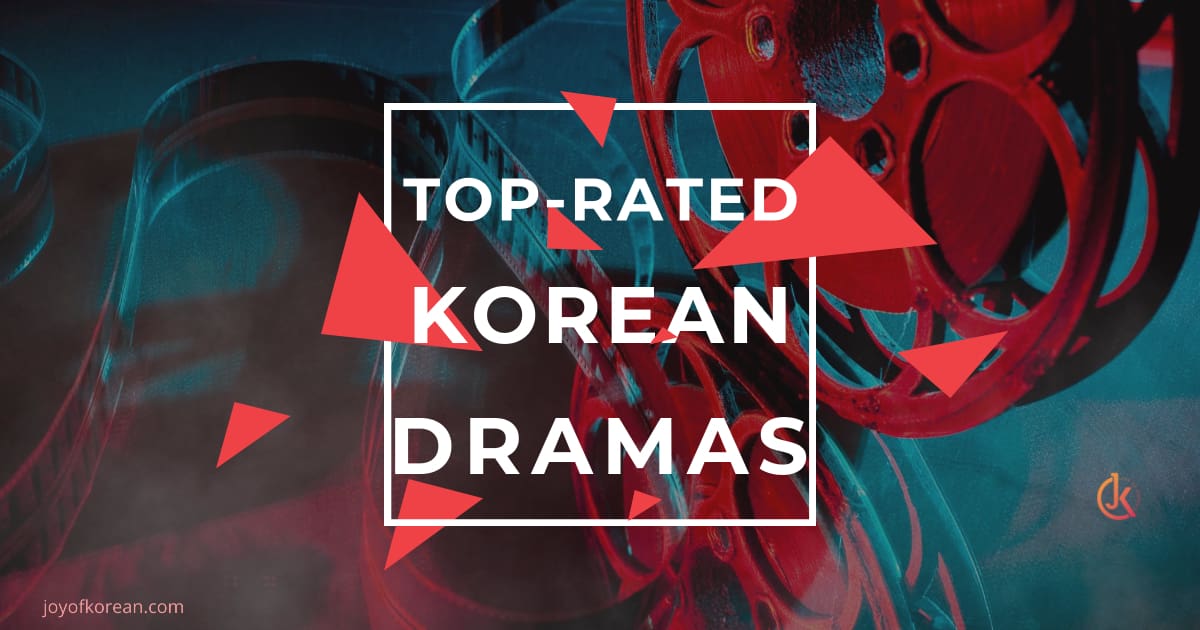



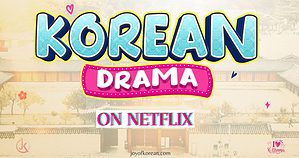


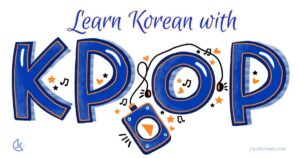




Loved this post! I have been watching kdramas since 2018 and i have been literally binging them and I think I have watched more than 80 dramas till date and thanks to those i started learning Korean last year and truly watching dramas help relate to the language much better!